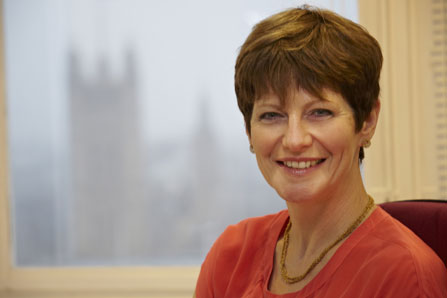In her first report as the new Parliamentary and Health Service Ombudsman, Dame Julie Mellor, DBE reveals that a record number of enquiries were received in the last year from people needing help with their complaint.
Published today (11 July 2012), the Ombudsman’s Annual Report for 2011-12 shows that 23,846 enquiries were received last year, more than ever before, with the vast majority from people who simply needed advice on where or how to complain about public services in the first instance.
For many others, who have already tried complaining to the service provider they’re unhappy with, using the Ombudsman’s service is their last resort. There were 4,732 of these cases during the year: in 759 of them, things were put right quickly without the need for a formal investigation, while a further 421 cases were taken on for investigation. In the remaining 3,552 cases the Ombudsman’s service found there was no case to answer.
The Annual Report includes real life stories of people who have used the Ombudsman’s service during the year. These include a man with learning difficulties who was wrongly placed on a GP scheme for violent patients, and a woman whose business reputation was damaged when Ofsted published an incorrect report about her nursery which was later deemed null and void.
Other case studies featured in the report demonstrate how, by shining a light on big, service-wide problems, the Ombudsman’s service has been instrumental in improving public services for the wider public.
The report also reveals that:
- The Ministry of Justice, the Home Office and the Department for Work and Pensions triggered more formal investigations than any other government departments.
- The Ombudsman’s service secured 591 apologies and 531 compensation payments for complainants to help put things right following a complaint
- More cases were resolved quickly, by putting things right without the need for formal investigation, than ever before (759).
Announcing the publication of the Annual Report, Julie Mellor said: ‘I’m very proud to have joined an organisation known for its independence and authority, and my thanks go to my predecessor Ann Abraham who has given us such strong foundations on which to build.
Moving forward, we want to have more impact for more people. People often come to us for help because they don’t know where to start when it comes to complaining about public services. We want to make it easier for people to get their complaints heard at a local level and we want more people to know about us and understand how and when to bring their complaints to us.
We also want to work in partnership with MPs and others to spot potential problems or failures that may be affecting large numbers of people, so that we can put them right, and there’s more we want to do to ensure the lessons learnt from complaints are used to improve everyone’s experience of public services’.
The Ombudsman’s Annual Report for 2011-12 is available at www.ombudsman.org.uk.
- The Parliamentary and Health Service Ombudsman’s role is to consider complaints that government departments, a range of other public bodies in the UK, and the NHS in England, have not acted properly or fairly or have provided a poor service.
- If someone is unhappy about the service they have received from the NHS, a government department or another public body, they should first make their complaint to the organisation in question and give them the chance to respond. If they’re not satisfied with how their complaint is dealt with, the Ombudsman’s office is there to help.
- Dame Julie Mellor, DBE holds the post of Health Service Ombudsman for England and Parliamentary Ombudsman. Julie Mellor took up the role in January 2012.
